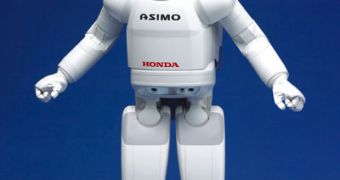Specialists working with the University of Duisburg Essen in Germany now claim that, according to their investigations, robots can sometimes stir feelings of empathy in humans.
More precisely, it is their belief that, under given circumstances, people might find themselves relating to robots as if the latter were also humans and not mere non-sentient objects.
In all fairness, the presence of robots in several blockbuster movies has long shown that humans can experience feelings of empathy directed at such objects.
Still, it took a while for researchers to document what happens inside the human brain whenever such behaviors occur.
With the help of specialists working at the Erwin L. Hahn Institute for Magnetic Resonance Imaging in Essen, the scientists had the opportunity to study the brain activity of 14 volunteers while the latter were busy watching a series of videos.
The videos showed a human, a robot and an inanimate object being treated either in an affectionate or in a violent way. Sources say that, in the case of these 14 volunteers, the sight of the human and that of the robot being treated kindly or poorly fired up the same neurological pathways.
However, it appears that the volunteers displayed a more negative emphatic concern towards the human shown in these videos than towards the robot.
Differences aside, this study proves that the human brain reacts in a fairly similar manner when confronted with images of other people and images of robots.
Given the progress constantly being made in the field of human-robot interaction, this study might help shed new light on how humans emotionally relate to such objects.
“One goal of current robotics research is to develop robotic companions that establish a long-term relationship with a human user, because robot companions can be useful and beneficial tools.”
“They could assist elderly people in daily tasks and enable them to live longer autonomously in their homes, help disabled people in their environments, or keep patients engaged during the rehabilitation process,” argued specialist Rosenthal-von der Pütten.

 14 DAY TRIAL //
14 DAY TRIAL //